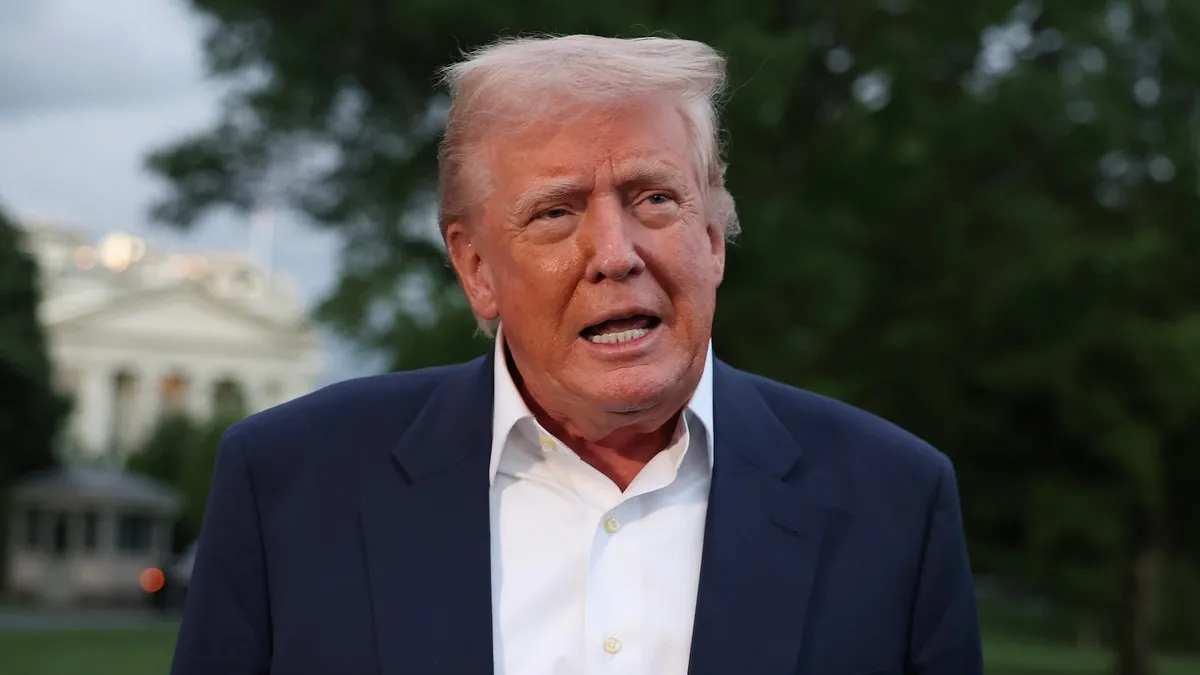
In a recent interview on NBC's Meet the Press, President Donald Trump expressed uncertainty regarding his obligation to uphold the Constitution and the Fifth Amendment right to due process. This statement comes just over 100 days after he took the oath of office, amid a backdrop of judicial pushback against his aggressive mass deportation initiatives. During his conversation with moderator Kristen Welker, Trump was confronted with a critical question: Do citizens and noncitizens alike have a right to due process?
Trump's response was notably evasive. “I don’t know. I’m not a lawyer. I don’t know,” he stated, despite Welker pointing out that the Fifth Amendment explicitly states that no person shall be deprived of life, liberty, or property without due process of law. When pressed further, Trump reiterated his uncertainty, suggesting that adhering to due process would require a monumental number of trials, potentially involving millions of illegal immigrants.
During the interview, Trump lamented the judicial system's hindrance to his efforts to remove what he termed "some of the worst people on earth," including murderers and drug dealers. He expressed frustration with the courts, claiming they were obstructing his mandate to deport these individuals. When asked once more about his responsibilities as president to uphold the Constitution, Trump deflected again, stating, “I have brilliant lawyers that work for me,” indicating that he would defer to their legal interpretations.
Legal experts have pointed out that the Fifth Amendment does not differentiate between citizens and noncitizens in terms of due process rights. In fact, the Supreme Court has consistently ruled that illegal immigrants are entitled to due process protections under both the Fifth and Fourteenth Amendments. Notably, even Justice Antonin Scalia, a figure Trump has publicly admired, affirmed that the language of the Fifth Amendment applies to all “persons,” not just American citizens. Michael Gerhardt, a constitutional law expert at the University of North Carolina, highlighted this point, noting that Scalia’s 1993 ruling acknowledged that aliens have due process rights in deportation proceedings.
According to constitutional law expert Gerhardt, Trump’s lack of acknowledgment of his oath to support and defend the Constitution is unprecedented in American history. While many presidents have lacked formal legal training, they have nonetheless recognized their duty to uphold the Constitution. On January 20, during his inauguration, Trump took the oath of office, affirming that he would “preserve, protect and defend the Constitution of the United States.”
In a further escalation of his tensions with the judiciary, Trump indicated his intent to appoint judges who would not challenge his deportation strategy. “We need judges that are not going to be demanding trials for every single illegal immigrant,” he asserted while addressing reporters aboard Air Force One. He argued against the practicality of holding trials for millions of undocumented immigrants, a stance that has drawn criticism from legal experts.
Trump’s remarks have prompted swift backlash from Democrats and other critics, who argue that his comments represent a troubling disregard for constitutional principles. Senate Democratic Leader Chuck Schumer condemned Trump's statements, asserting, “This is as un-American as it gets.” Republican Senator Rand Paul also weighed in, emphasizing that adhering to the Constitution is not merely a suggestion but a guiding principle for all public officials. “It is shocking that a sitting president would treat the Constitution as if it's an inconvenience,” remarked attorney David Leopold, a former president of the American Immigration Lawyers Association.
Leopold further emphasized that allowing the government to operate as judge, jury, and executioner undermines the founding principles of the United States. “That’s not what this country was founded on. That’s what an authoritarian country is. We are not an authoritarian country. We are a constitutional republic,” he asserted, reinforcing the importance of due process in immigration matters.